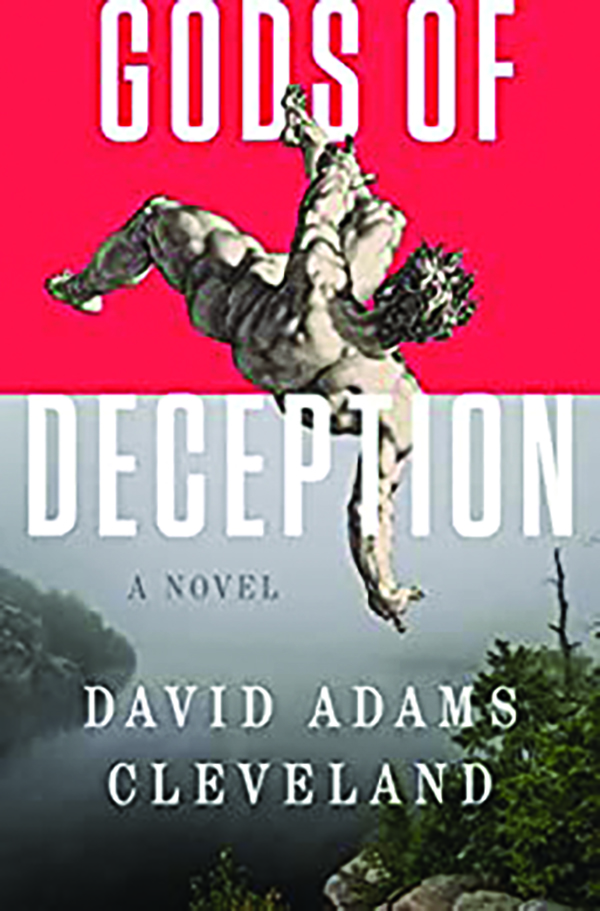
Demons in America
Walter Russell Mead
David Cleveland may be the most interesting as well as the most unfashionable novelist working in the United States. His latest, Gods of Deception, is a sympathetic investigation of an elite WASP family whose intellectual and political interests are firmly grounded in the world of what was once called high culture. His sentences are intricately fashioned, alternating finely observed descriptions of complex works of art with portrayals of natural landscapes that reflect his deep familiarity with the geology, botany, and geography of the Hudson River Valley. When his elite and privileged characters make small talk, they make a lot of it. They discuss subjects such as astrophysics, Freudian psychology, Marxism, and art history with real expertise and depth. Radiating Proustian intricacy, Jamesian subtlety, a Whartonesque focus on upper-class mores, and Auchinclossian attention to the finer points of the professional life of the successful WASP, Gods of Deception commits every conceivable offense against the literary fashions of our time.
And it gets worse. His most feminist characters are among the least sympathetic. Enormously privileged women whose professional lives go from triumph to triumph are consumed by a bitter sense of loss and rejection. These Karens don’t just want to see the manager. They want to skin him alive.

Worst of all, the novel’s political stance is robustly conservative. The plot revolves around the guilt of Alger Hiss and the malign conspiracy of Communists, fellow travelers, and dupes who enabled his crimes. And instead of being justly deprived of their privilege by an intersectional coalition of the oppressed and indigenous, Cleveland’s aristocrats renew their wealth and their social power as the old elite passes its privilege down the generations.
No prudent professor would teach such a triggering and difficult novel to American undergraduates today. It is, however, an accomplished and compelling novel of enormous ambition, and it offers the most searching and thoughtful examination of the crisis and transformation of the old WASP elite that I have seen.
Gods opens in 2002, in a Manhattan still in shock from the 9/11 attacks, on the first night of an exhibition in George Altmann’s Manhattan art gallery Dark Matter. The opening is a triumph on every level. The paintings — by George’s paternal grandfather, David Altmann, a 1930s Communist Party member who broke with the party and socialist realism to produce strikingly original but critically shunned Rothko-like abstracts evoking the landscapes of the Catskills in later years — sell like hotcakes. The critics swoon. And one of the visitors at the gallery is Wendy Bradley, a young woman of extraordinary artistic talent and intellect who soon initiates a romantic relationship with George.
George’s formidable aunts Alice and Martha appear at the opening, and family drama erupts as word comes that paterfamilias Edward Dimock, a nonagenarian retired federal appeals court judge, is refusing nourishment. The next day, George agrees to visit the Judge, as the family calls him, to cajole him back from the brink. George’s journey brings readers to the family home, a magnificent country house called Hermitage, whose features include a lavishly painted, 16th-century ceiling carefully disassembled in Venice and brought to the New World.
Gods of Deception weaves multiple storylines together as it follows the affairs of the Dimock family through the generations. The progenitor, a Civil War surgeon who went on to a lucrative career as the trusted family doctor of the Gilded Age’s New York social elite, built Hermitage and accumulated the fortune that allowed his son to spend his career on the federal bench. Judge Edward Dimock married the gifted concert pianist Annie Davenport; their four children and assorted grandchildren struggle in various ways to cope with the downward mobility of successive generations as the family fortune dwindles over time and the WASP elite into which they were born gradually loses its social and political primacy in a changing America.
When George arrives at Hermitage, he discovers that the Judge has plans for him. Judge Dimock, whose controversial role as a defense lawyer in the perjury trial of Alger Hiss wrecked his marriage and helped blight his hopes for a place on the Supreme Court, has written a memoir. He wants George to edit it. As George reviews the Judge’s papers, he realizes that there may be a connection between the Judge’s work on the Hiss case and the death (accident? suicide? murder?) of David Altmann the painter. From this point forward, the book’s multiple stories unfold as George struggles to understand the death of one grandfather and the motives of the other, as the three sisters and their children work through the dynamics of their dysfunctional but inescapable inheritance, as George’s romantic relationship with Wendy develops unpredictably, as the Judge comes to terms with the wreckage the Hiss case made of his family and professional life, and as the family members struggle with the impending loss of Hermitage as the family fortune declines.
It speaks to Cleveland’s skill as a novelist that this complicated machinery works as well as it does. There are moments when the creaking of the elaborately nested plots disturbs the concentration of the reader and challenges the suspension of disbelief, but these lapses are both relatively rare and, given the overall depth and richness of the narrative, entirely forgivable.
I knew David Cleveland, though not well, almost 60 years ago, when the two of us attempted, with modest success, to navigate the various pitfalls of life in an all-boys New England boarding school. I had no inkling then that one of the outstanding literary talents of our time was freezing in a nearby cubicle in our spartan dorm. But Gods of Deception has taught me better. David Cleveland is a major American novelist whose ear for language, eye for both natural and artistic detail, cultural scholarship, understanding of human character, and feel for American social reality make him a national treasure.
Walter Russell Mead is the James Clarke Chace professor of foreign affairs and humanities at Bard College and global view columnist at the Wall Street Journal. He is a distinguished scholar in American statecraft and strategy at the Hudson Institute.
